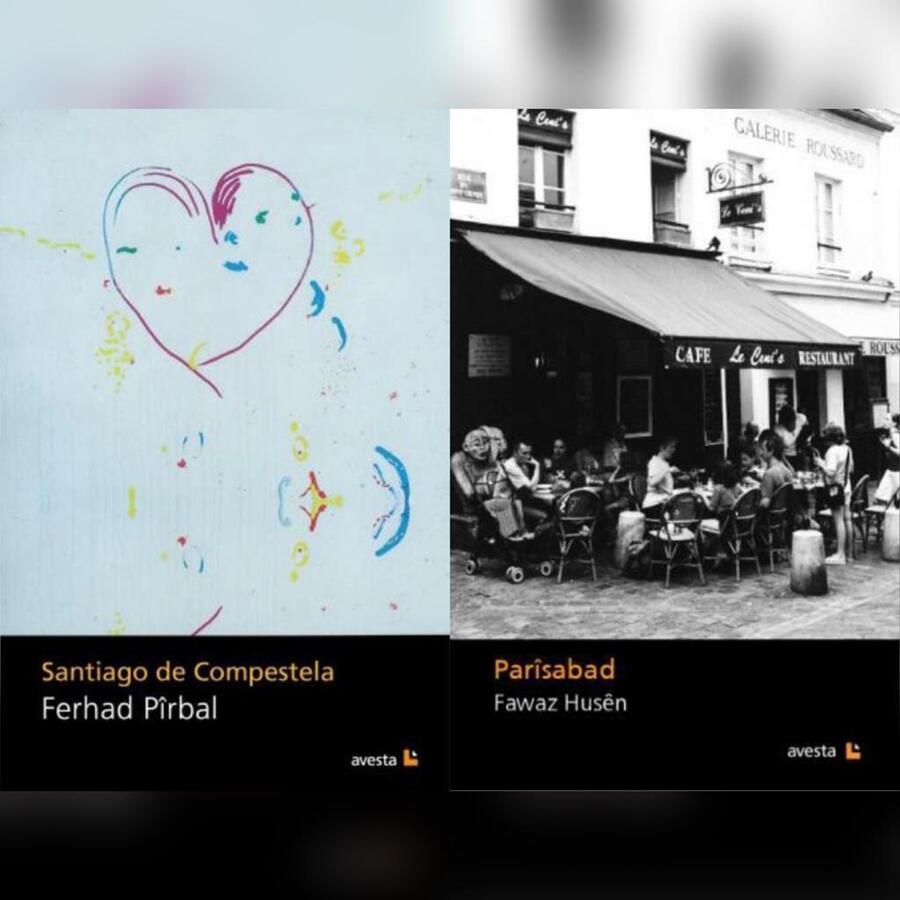Kurdshop - Diaspora is the place of residence of people who have been expelled from their country for various reasons and have been forced to live abroad for a long time. People living in the diaspora are of many different groups engaged in political, cultural, artistic, literary, etc. activities. Diaspora literature is written by people far from their homeland and expresses their longing for their homeland in writing.
We can briefly mention some characteristics of diaspora literature: In diaspora literature, we face the theme of returning to the country. The characters of this literature are generally in conflict and confusion because of leaving the country and trying to adapt to a new country. Because they do not consider themselves to belong to their country or to the country they have moved to, they are not satisfied at all and they always feel abandoned.
In this context, we compare Santiago de Compostela by Farhad Pirbal and Periabad by Fawaz Hussain. In both novels, the understanding of diaspora and diaspora life differs at some points. In Periabad, the theme of diaspora is dealt with in personal suffering and the center is Paris, which means that he looked at the country from Paris and tells the story in the first person. Our character, Isa, upon hearing of his father's death, immediately separates himself from the society he did not consider himself part of, but sometimes when he goes to the neighborhood Faubourg Saint-Denis because it is a refugee neighborhood, he calms down; just like a lost person who is happy to see friends and relatives. Tim, who lives in another country with his father, returns and his condition reaches the level of severe mental problems.
However, in Farhad Pirbal's novel, Santiago de Compostela", the understanding of diaspora manifests itself with the theme of return. By going from Paris to Santiago, this desire to return to the country is represented by the metaphor of the road. Because Santiago is geographically located in Spain between East and West. Going there is seen as returning to the country. There are two opposing ideas about life in the diaspora in the novel; "Behjat Wali" and "Nariman", who both represent the life of the diaspora and the country, are like a village in their idea, like a big lamp. But our character "Dara" is against this idea and says that he has even missed the country's trash cans.
In both novels, the main characters, Dara and Isa, hate Europeans and do not see themselves as belonging to those nations and countries. This makes our two characters feel trapped in the crowds of European countries. They are still thinking about returning home. There are also mental problems in both characters. Since Dara is a designer, he is more in contact with different nations and there is a kind of disrespect in his words about Europeans. Isa also fears the police because of European Islamophobia and always sees himself as a criminal. These things make their feelings of alienation and withdrawal from society more difficult and they fall more into the psychology of refugee loneliness.
Before these characters came to Europe, Europe was a dream for them. Periabad novel reflects this in the metaphor "Dar Snawbar" (Poplar). Isa buys Poplar for himself because his father loved Poplar trees, but when he arrives home, he finds the tree rotten. We can relate this to Isa's dream of going to Europe, because when you look at it from the outside, Europe looks like a very nice place, but when you go into real life in Europe, you see that there is nothing like that. In Santiago de Compostela, this fantasy is shown to us through the metaphor of a woman's beauty. Where Dara is passionate about marriage and almost reaches that beauty, but when Dara goes to the address Venus gave him, he finds an old woman there. The author portrays the true ugliness of Europe as a deceitful old woman. This is a criticism of wanting to leave the country.
In our two characters, Isa returns to Amude with love for his country and goes to his village, after the death of his father, where he does not see what he dreamed of and is drowned in the dust of the village. Isa does not see himself as belonging to that country and lives in a gap between the two countries. He sees himself neither as a European nor as a resident of Kurdistan.
Dara also is always on his way back to the country, but he does not reach his country and always misses his homeland.









